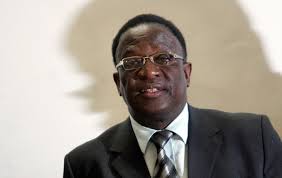Zimbabwe is making significant strides towards the elimination of the death penalty from its statutes as demonstrated by the removal of all women and persons aged below 21 from facing the death sentence, Vice President Emmerson Mnangagwa has said.
Addressing delegates attending the 9th International Meeting of the Ministers of Justice in Rome, Italy yesterday, Vice President Mnangagwa said he was positive that Zimbabwe will soon abolish capital punishment.
He said he survived death penalty during the Rhodesian regime and knows “the tribulations faced by those on death row”.
“The legislative history of Zimbabwe in so far as the death penalty is concerned demonstrates that the country is making significant strides towards the elimination of capital punishment,” said VP Mnangagwa.
“The exclusion of all women and the increase of the minimum age of execution from 18 to 21 years under the current Constitution of Zimbabwe is a positive step towards the abolition of the death penalty.”
Under the old Constitution, only pregnant women and persons below the age of 18 were exempted from the death penalty.
“A lot of criticism has been levelled against the country to the effect that these constitutional provisions, instead of promoting gender balance under the criminal justice system, are actually discriminatory against male offenders,” said VP Mnangagwa.
“This discriminatory provision was maintained at the referendum after realisation by the majority that the most heinous and ruinous offences were actually at the instigation of the males than females.”
VP Mnangagwa said as leaders in Government, they noted the concerns raised and will address them at the opportune time.
“Surely, we will not hesitate to expunge capital punishment from our laws,” he said.
VP Mnangagwa said the Ministry of Justice, Legal and Parliamentary Affairs had launched campaigns to educate people about the new Constitution and emphasis was on the abolition of the death penalty.
He said Zimbabwe was very aware of, and committed to its obligations under the various international human rights instruments she has ratified and acceded to, adding that steps have been taken to ensure the national law was in conformity with international human rights norms.
“The country underwent the peer review process under the auspices of the UN Human Rights Council, wherein it accepted most of the recommendations to improve the human rights situation,” said VP Mnangagwa.
“One such recommendation it accepted was in relation to the abolition of the death penalty.
“The country also accepted the recommendations to consider ratifying the Second Optional Protocol to the International Covenant on Civil and Political Rights and to take measures to abolish the death penalty.”
VP Mnangagwa said the objective of the criminal justice system was now increasingly being viewed from a rehabilitative point of view than from an incarceration and retributive perspective.
“Having survived the death penalty myself, I know the tribulations faced by those on death row,” he said.
“The moment a sentence is pronounced that you are going to die by hanging, the whole world collapses on you,” he said adding that, “The death penalty is, in fact, a flagrant violation of the right to life and dignity.”








